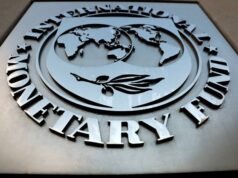US formally ends forged case against Meng Wanzhou, Canada becomes a Joker

Meng Wanzhou speaks to media outside the British Columbia Supreme Court in Canada.
A US district judge in Brooklyn, New York on Friday dismissed an indictment against Meng Wanzhou, chief financial officer of Chinese telecom giant Huawei Technologies. The move is purely a formality after a deferred prosecution agreement reached with US prosecutors in September 2021, which paved the way for Meng’s release by Canadian authorities and her subsequent return to China.
Still, Friday’s dismissal by the US judge marks a formal end to the US’ shady case against Meng, which became an international incident of profound implications that dragged China-US relations as well as China-Canada relations into historic lows.
The US judge may have formally ended the case, but much of the damage the case has done on so many fronts, including the US justice system’s credibility, the US’ global image and indeed relations among the three countries, remains irreparable.
US officials like to go around the world and lecture other countries about its judicial independence. But as the saga surrounding Meng’s case showed, the US’ justice system is very much part of the US’ government apparatus in targeting foreign competitors and preserving its hegemony.
In the case against Meng, a political decision was made in the White House to target Huawei, and the US justice system did the rest of the government’s dirty work, with prosecutors putting together dubious bank fraud charges and the court issuing arrest warrant.
Then, clearly with political decisions involved, US prosecutors moved to ask the US judge to dismiss the case and the judge did just that on Friday. Is that really the type of judicial independence the US officials constantly tout? What do that say about the US’ justice system? Yes, being the hypocrites, US officials, prosecutors and judges make the whole process seem like real with all the formalities like filings, hearings and rulings. But as the final outcome shows, that is all about geopolitics. And this geopolitical trick continues today and for the foreseeable future against Huawei.
The Chinese firm is not the first to be targeted by the US (French industrial conglomerate Alstom and its executive Frederic Pierucci were in the same position only a few years ago), and make no mistake, it will not be the last foreign company to be unfairly targeted by the US. All non-US global industry leaders shouldn’t take that risk lightly.
As vicious as it may be, the US’ case against Meng was clearly well orchestrated with close inter-agency coordination. That’s not the case with Canada. Canadian authorities arrested Meng at a Vancouver airport at the behest of the US and put her under house arrest for nearly three years. Over the past several years, Canadian officials showed nothing but complete ineptness in dealing with the fallout of that move, other than repeatedly pointing to its extradition agreement with the US.
In fact, even as the US has officially wrapped up the case, Canadian officials have not been able to also put an end to the saga and work to repair the massive damage done to what otherwise had been a friendly and mutually beneficial China-Canada relationship. With Meng’s release, many expected an improvement in China-Canada ties. Needless to say, that did not materialize.
On the contrary, Canadian officials have only doubled down on their hostile moves against China, even as many other Western countries, as they become increasingly clear-minded about the danger of the US’ unilateral, protectionist and confrontational approach, are trying to pursue constructive and pragmatic ties with China. With Meng’s case, the US made a fool out of Canada’s government, and Ottawa’s response is that it will go all in in following the US’ confrontational approach against China. That is truly regrettable.
Just last week, the Canadian government released its so-called Indo-Pacific Strategy, making clear that it will stubbornly embark on a confrontational path. From the name to the content, Canada’s strategy is a complete knockoff of the US’ Indo-Pacific Strategy, which is full of prejudice and hostility toward China.
Meanwhile, some Canadian politicians are peddling claims of China “interfering” in Canadian elections – also a knockoff of the US claims against perceived adversaries. Also, Canadian authorities recently arrested a public utility worker at Hydro-Quebec, alleging the worker was “spying for China.” Canadian officials have also publicly supported the US’ push for an economic decoupling from China, while other US allies have rejected that.
Many are puzzled by Canada’s moves and regret to see the increasingly hostile words and deeds coming out of Ottawa. Canada had long been a friendly country and there is so much potential for win-win cooperation even when there are differences.
However, much of the differences in terms of political system and culture existing today had existed decades ago when Canada, under former legendary Prime Minister Pierre-Elliott Trudeau, established diplomatic ties with many in 1970. What changed is the rapid development of others, which should be good news for economic partners like Canada, and the US’ desperate attempt to dominate the world and cling onto its sliding global dominance, which apparently has tremendous sway over Canada’s foreign policy. What’s also truly regrettable for many to see is the loss of Canada’s independent foreign policymaking to US influence.




